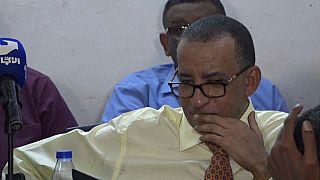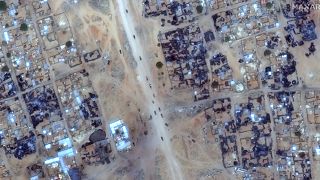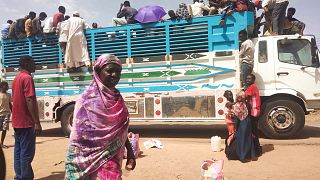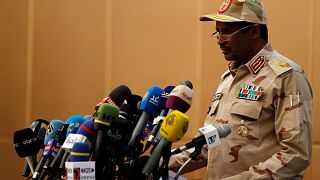Sudan
Animal markets in Sudan's capital Khartoum are teeming with livestock, just days before Muslims mark Eid al Adha or the feast of sacrifice.
But the celebration comes at a time many in the country are struggling to make ends meet and there are not many buyers.
"The market was stagnant, but the demand and mobility [have] increased a little a few days before Eid. The prices were more reasonable last year, but the increase in prices of feed, fuel prices and transport costs, and the scarcity of animals drove the prices up this year," said Abdulmunim Nur, a cattle breeder.
A rapid acceleration in prices since February means many families are priced out of buying sheep. Sudan's economy has been characterized by high inflation and currency shortages for years.
"Sacrifice is a part of our faith and we are very willing to fulfill it. Prices are shaped according to political and economic developments in Sudan and the world. In the days leading up to Eid, sacrifice purchases are very weak. Prices are high, but there are also opportunities for citizens to buy sacrifices in installments or in other ways," said Walid Ali, who had come to look for animals in Khartoum.
Sudan, which is considered one of the central countries of animal husbandry in Africa, has more than 100 million livestock. It exports animals to many countries, especially Saudi Arabia.











Go to video
Libya devalues currency for first time in four years amid fiscal strain
Go to video
Muslims in Cairo stock up on provisions for Ramadan
03:52
Amid drought, King urges Moroccans not to kill sheep for Eid al-Adha
Go to video
Sudan seeks to bolster diplomatic ties with Iran
01:49
January sees Egypt's inflation Fall to 23.0% due to base effect
01:32
UN Security Council meeting highlights South Sudan's economic hurdles